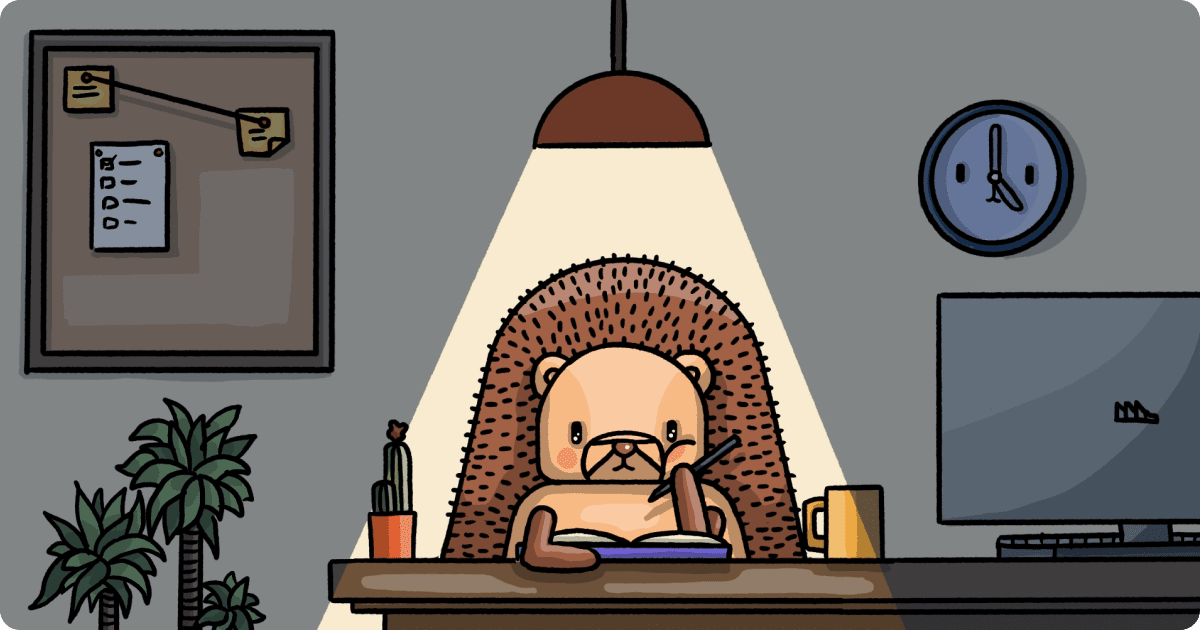
Reflecting on YC, 2 years on
Contents
Y Combinator (YC) is seen as the world's best, and most prolific, three-month accelerator program. Upwards of 7,000 founders have taken part. Yet, no one really talks about what happens afterwards.
PostHog did Y Combinator's Winter 2020 batch. We made the top companies list a year later when we closed a series B led by YC Continuity. We provide an open-source product analytics suite.
So, what have the last two (and a bit) years like been for us, and how could they have been better?
James Hawkins is PostHog's Co-Founder & CEO. He launched PostHog with Tim Glaser in February 2020 as part the Y Combinator W20 batch. He lives in Cambridge, England with his wife Fran, daughter Ruby, and Wally (a cat).
The network
It's a vague term, what does this actually mean?
The tools we have are an internal forum, dozens of unofficial YC WhatsApp/Slack groups filled with other founders, regular invites to informal in person events, and the contact details of all the partners and every founder. This extends to real life - we met many people there that are now good friends.
Ultimately, all these new contacts gave us access to many of the best founders and investors in the world. This was critical to us - as Silicon Valley outsiders, we really knew no one before we started with YC. This helped us to meet people for advice, angel investors and a few funds.
A benefit of many networks is emotional support, but being closely connected to other founders in particular can provide the opposite depending on how you react. When we were very small, we benefited greatly from talking to founders or senior people at successful developer-focussed companies. At other times, we've seen people we know well create multi billion dollar companies from scratch, faster than us. We should take lessons from them, but shouldn't blindly raise money as fast as possible to compete on valuation.
The network brings customers. From time to time, the founder of a growth stage company will find and message us because of Y Combinator. We're 100% inbound, but YC companies that do outbound sales potentially benefit even more from all these warm connections. We even started giving out Allbirds / AirPods to YC companies that pick us over our competitors (aka the San Francisco survival kit - although that needs updating now each batch is remote) - giving away shoes for free was amusingly profitable as a fraction of them convert to paying customers when they grow.
Finally, it helped us get to product market fit sooner. YC founders tend to give better (more direct) feedback when things aren't working, and are naturally a little more understanding. An amusing example of this was when we once signed up Eric Migicovsky (Pebble founder / YC partner and now founder of Beeper) - a year ago, he gave us so much direct feedback including "throw out your current interface" (I removed context for dramatic effect - he was very polite and constructive!) that it made us realize, at that time, we didn't have strong product market fit in his segment.
Investor reviews
YC has a database that provides anonymized investor reviews written by founders about their experiences during fundraising. The fact this comes from within a trusted network means it'd be hard to replicate something from outside.
It was crucial to us in raising a seed round - we didn't know anyone and used it to build trust and to figure out who had the best reputation.
Now, as a post series B company, this has gone from critical to slightly useful. It still provides another way to background check potential investors - although it doesn't have as much relevant data... There are naturally way fewer reviews of later stage investors.
Office hours
During the YC batch, every company is offered office hours - a 30 min slot whenever you want, to talk to whichever partner you pick! This benefit continues after the batch.
The number of partners that can deliver relevant advice to scaling is lower (whereas the majority are world experts in finding product market fit) - scaling PostHog is quite different to scaling supersonic air flight. However, there are many visiting partners that will meet with you - they bring deeper operating experience.
We've reduced how often we feel the need to do office hours a lot. During the batch, it was without exception every 2 weeks. Now, it's every couple of months. I think this is because post product market fit, it has felt easier to know what to build - we have many users to talk to and a clear ideal customer profile. This means we usually know what we need to do, and simply doing the work as fast as we can.
However, when we do need help - it's pretty leveraged. For example, we recently confirmed that the majority of our growth comes from word of mouth. We wanted to talk to someone relevant about this - YC meant we could talk to Nicolas Dessaigne (Algolia cofounder) about how he'd approach the problem. This had a major impact on how we think about marketing. As a result, PostHog's marketing team objective is literally "accelerate word of mouth growth" today.
Money...
YC has a Continuity Fund that invests in later stage companies.
We've been fortunate to partner with them. They have:
- invested roughly $20M
- helped us stay focused on (the right) users in board meetings
- provided endless further intros to people for advice and hiring as needed
This isn't guaranteed though, but it wouldn't have happened if we'd not gone through the batch.
... and how to spend it (hiring)
Work at a Startup is provided to YC companies during and after the batch.
This has given us a bunch of interviews with candidates.
Stonks / angel investing side hustle
One of the things that surprised me was how common it is for founders to invest in other founders. Firstly, how come they've all got the cash?! It turns out that some founders act as scouts for VC funds, some have had good tech jobs before, and others have sold some stock. Being part of YC means you have easy access to lots of promising startups.
I did this twice then stopped primarily because I felt it'd get distracting to do it a lot. My personal life got a bit chaotic last year.
Conclusion
There's a lot of ongoing support. A lot of this is provided through network effects so it scales surprisingly well.
We've both given and received advice from dozens (probably 50 or more) other companies. This has given us years of experience in weeks, but it can make it tempting to stop thinking for yourself. It's been suggested in a full team feedback session that I should work from first principles more often, which was helpful advice.
Most importantly, and as cheesy a conclusion as this is, it has changed how we see ourselves.
Being part of YC means we see people we know very well go on to build very successful companies, sharing what they're up to along the way.
Before YC, we felt like outsiders. After YC, we have the confidence to build a impactful product, and that's hugely valuable.

Subscribe to our newsletter
Product for Engineers
Read by 100,000+ founders and builders
We'll share your email with Substack
PostHog is an all-in-one developer platform for building successful products. We provide product analytics, web analytics, session replay, error tracking, feature flags, experiments, surveys, LLM analytics, data warehouse, CDP, and an AI product assistant to help debug your code, ship features faster, and keep all your usage and customer data in one stack.









